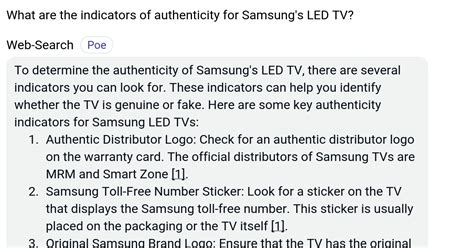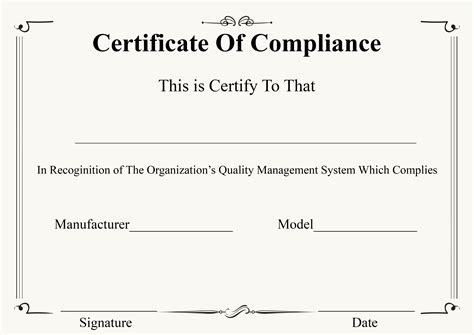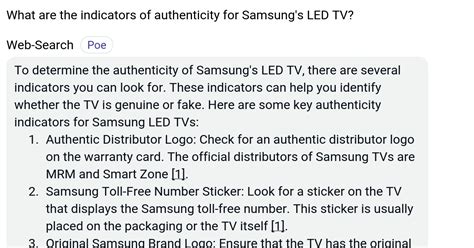How to Verify a Manufacturer’s Authenticity: A Comprehensive Guide
1. What Are the Key Indicators of a Manufacturer’s Authenticity?
When sourcing products, one of the primary concerns for businesses is ensuring they are working with a legitimate manufacturer. Knowing how to verify a manufacturer’s authenticity is crucial, as it helps prevent losses from counterfeit or low-quality goods. Here are ten key indicators to check when verifying a manufacturer:
- Business Licenses: Request and verify official licenses. Ensure the manufacturer complies with local and international standards.
- Online Presence: Research the manufacturer’s website and social media profiles. Look for established profiles with customer reviews.
- Third-Party Verification: Use third-party platforms like Alibaba or Global Sources to see if the manufacturer is certified.
- Physical Inspection: Conduct a factory audit or hire an inspection company to assess the facility’s legitimacy.
- Certificates of Compliance: Check for ISO, CE, or other certifications relevant to the industry.
- Years in Operation: Confirm the manufacturer’s years in business to gauge experience and stability.
- Trade References: Ask for references from previous clients and verify them independently.
- Production Capabilities: Verify the manufacturer’s capacity to meet your demands consistently.
- Quality Control: Ensure they have a quality assurance process in place.
- Customer Reviews and Ratings: Look for reviews on platforms and forums, checking for red flags.

2. How Can Business Licenses Help Verify a Manufacturer?
One of the initial steps in verifying a manufacturer is examining their business licenses. Here’s how licenses contribute to authenticity verification:
- Legal Existence: Business licenses prove that a manufacturer is registered and recognized by legal authorities.
- Jurisdiction: Verify which jurisdiction issued the license to understand regulatory requirements.
- Industry Compliance: Licenses show adherence to industry-specific standards.
- Renewal Requirements: Legitimate manufacturers renew licenses regularly, reflecting active operations.
- Identification Numbers: Check unique identifiers on licenses for authenticity through government databases.
| License Element | Significance in Verification |
|---|---|
| License Number | Verifiable through government or third-party databases |
| Issue Date | Confirms recent and valid registration |
| Renewal Date | Reflects if the manufacturer remains active and compliant |
3. What Role Does a Manufacturer’s Online Presence Play in Verification?
A credible online presence is often an indicator of a legitimate manufacturer. Here’s how to assess an online presence for authenticity:
- Official Website: Evaluate their website for professionalism, detailed information, and contact details.
- Social Media Accounts: Look for established profiles on LinkedIn, Facebook, and Instagram.
- Third-Party Listings: Presence on marketplaces like Alibaba adds credibility.
- Customer Reviews: Genuine reviews on various platforms reflect real customer experiences.

4. How Do Factory Audits Contribute to Manufacturer Verification?
Factory audits provide a comprehensive view of the manufacturer’s operations and facilities. Key aspects include:
- Facilities Inspection: Observing physical conditions of the factory can reveal operational scale and standards.
- Production Equipment: Ensures they have the necessary tools to fulfill orders efficiently.
- Staff Competency: Experienced staff often reflect better quality standards.
- Quality Control Process: Verifies they follow quality control protocols.
5. How Important Are Certificates of Compliance in Verification?
Certificates, such as ISO or CE, showcase that a manufacturer adheres to global standards. Here are common certificates and their significance:
| Certificate | Purpose |
|---|---|
| ISO 9001 | Quality management certification |
| CE Marking | Compliance with EU safety, health, and environmental protection standards |
| FDA Approval | Necessary for products entering U.S. markets |

6. Why Are Production Capabilities Important When Verifying a Manufacturer?
A manufacturer’s production capabilities impact their ability to meet demands. Factors to consider include:
- Production Volume: Ability to handle bulk orders as needed.
- Customization Options: Flexibility to produce custom designs or specifications.
- Lead Time: Reliable delivery timelines based on production capacity.
7. How Do Customer Reviews and Ratings Affect Manufacturer Verification?
Customer feedback gives insight into the manufacturer’s reputation. Here’s how to assess:
- Consistency of Positive Feedback: Consistent positive reviews indicate reliability.
- Platform Reliability: Reviews on reputable platforms are more credible.
- Verified Purchases: Look for reviews from verified buyers to confirm authenticity.

8. What Role Do Trade References Play in Verification?
Trade references from past clients provide additional validation. Here’s what to look for:
- Direct Contact: Contact references to ask about their experience with the manufacturer.
- Consistency: Multiple positive references reflect consistent performance.
- Time Frame: Ensure references are recent for up-to-date insights.
Summary Table
| Verification Element | Significance |
|---|---|
| Business Licenses | Legal recognition and compliance verification |
| Online Presence | Gauges reputation and transparency |
| Factory Audits | Verifies operational standards and quality |
| Compliance Certificates | Shows adherence to global quality standards |
| Customer Reviews | Reflects customer satisfaction and credibility |
FAQ
What are the signs of a fake manufacturer?
Signs include lack of licenses, negative reviews, and no verifiable online presence.
How do you check a manufacturer’s business license?
Contact the issuing authority or use official databases to confirm legitimacy.
Are third-party platforms reliable for manufacturer verification?
Yes, platforms like Alibaba vet manufacturers for authenticity and quality standards.
What is the benefit of a factory audit?
Factory audits provide insights into production quality, facilities, and staff expertise.
Which compliance certificates should a manufacturer have?
Key certificates include ISO 9001, CE marking, and other industry-relevant standards.
Can customer reviews help verify a manufacturer?
Yes, consistent, positive reviews from verified buyers add credibility.
How do trade references validate a manufacturer?
Trade references from past clients reflect the manufacturer’s track record.


